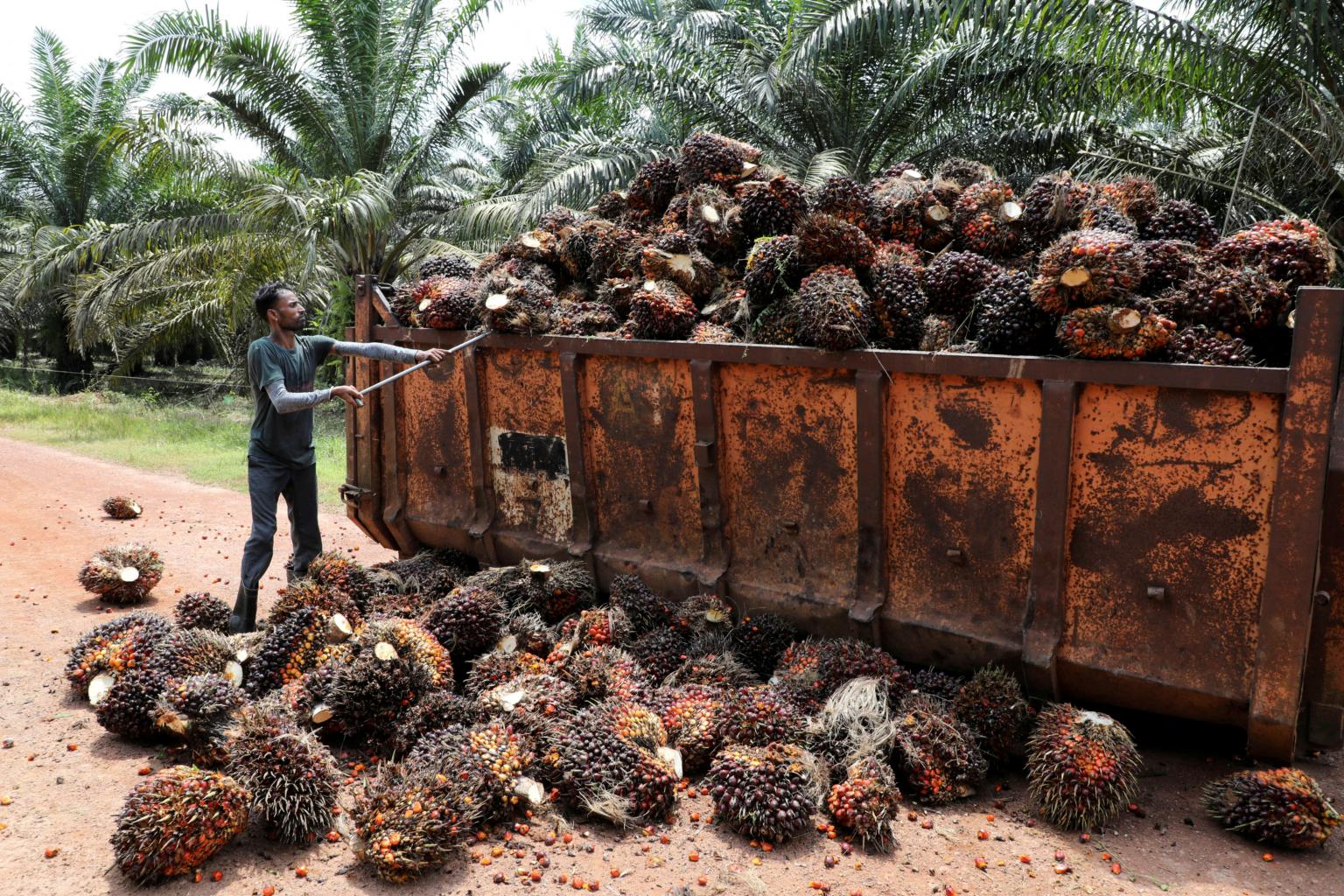Indonesia to lift palm oil export ban from Monday: President Widodo
Sign up now: Get insights on Asia's fast-moving developments

The lifting of the export ban will bring relief to the global market after the war in Ukraine choked off critical supplies.
PHOTO: REUTERS
Follow topic:
JAKARTA (REUTERS, BLOOMBERG) - Indonesia will lift its palm oil export ban from Monday (May 23) following improvements in the domestic cooking oil supply situation, President Joko Widodo said on Thursday (May 19).
The decision to lift the ban was taken despite the price of bulk cooking oil having not yet reached the targeted 14,000 rupiah (S$1.33) per litre price, as the government considers the welfare of 17 million workers in the palm oil industry, the president said in a video statement.
The decision to lift the ban was taken despite the price of bulk cooking oil having not yet reached the targeted 14,000 rupiah (S$1.33) per litre price, as the government considers the welfare of 17 million workers in the palm oil industry, the president said in a video statement.
Indonesia's finance minister on Thursday had said she would raise with the president a request by members of parliament's budget committee for a review of the palm oil export ban imposed last month to control soaring cooking oil prices.
Sri Mulyani Indrawati estimates the ban will reduce government revenue by 6 trillion rupiah (S$565 million) per month, she told reporters after the committee approved her request for additional energy subsidies.
During the budget hearing, lawmakers had urged the government to evaluate the export ban but did not discuss the policy in detail.
The lifting of the palm oil export ban by Indonesia, the world’s biggest shipper of edible oils, will bring relief to the global market after the war in Ukraine choked off critical supplies.
Exports of crude palm oil and other refined products including palm olein and used cooking oil can resume from May 23, President Widodo said in an online briefing on Thursday.
Indonesia’s ban, which was imposed since April 28, was one of the biggest acts of crop protectionism since Russia’s invasion of Ukraine, which stymied exports of sunflower oil and worsened a global shortage.
Palm oil is used in everything from food to soap to fuel, and the move by Indonesia threatened to push up costs even more across multiple supply chains at a time of rampant inflation.
The government has struggled to control prices and secure local supplies since December, with a raft of measures ranging from price caps, to export curbs and cash handouts for households and hawkers.
The government has struggled to control prices and secure local supplies since December, with a raft of measures ranging from price caps, to export curbs and cash handouts for households and hawkers.
But all that failed to pull down prices to the government target of 14,000 rupiah per litre of bulk oil. The surging costs helped push inflation to a three-year high in April.
Indonesia’s ban was widely anticipated to be short-lived. Gro Intelligence, an agricultural analysis firm, said that the government could be forced to relax the move by the fourth week of May to keep storage tanks from overflowing. An industry group also forecast that the policy would end this month.
Indonesia’s ban was widely anticipated to be short-lived. Gro Intelligence, an agricultural analysis firm, said that the government could be forced to relax the move by the fourth week of May to keep storage tanks from overflowing. An industry group also forecast that the policy would end this month.

